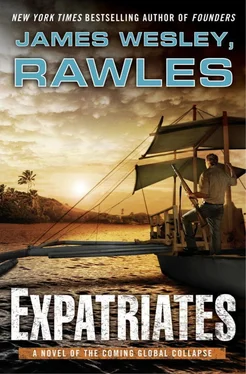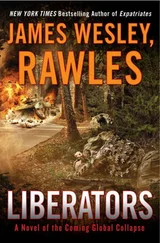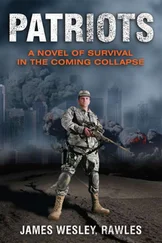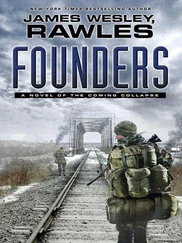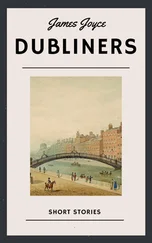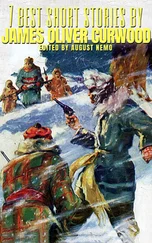“Ace!” Quentin whispered.
Next, Quentin brought up a browser window. Buried among more than 500 web page bookmarks was the Palmerston Beach House page. Opening it and then selecting the pull-down menu for HOUSE CONTROLS, he clicked on AIRCON. At the top of the next screen was a pair of toggle buttons marked A/C ON and A/C OFF. Below them was a temperature control slider with Celsius numbers in a blue-to-red gradation. He hovered the pointer over the A/C ON button and grinned. He whispered, “You found your true calling, Miss Samantha.” He gazed up at the brigade headquarters. Then looking back down at the iPhone, he closed the browser, checked the battery once more—now down to ninety-two percent—and powered down the phone. After rebagging the phone and notebook, he took a sip of water from his Camelbak. It was going to be a long day of watching.
• • •
That evening, Quentin decided to visit his other spider hole sites over the next several nights. He started by visiting his swamp hole, in Charles Darwin Nature Park. Walking stealthily, he covered the distance to the park in six hours. Most of the city was blacked out. There were just a few islands of light, mainly near the docks where the Indonesians and Malaysians had generators running. They were still landing, troops, vehicles, and innumerable pallet loads of artillery shells. Their incessant activity reminded Quentin of ants.
Quentin skirted around several buildings that were occupied by Indonesians. He was amazed to see that they took few, if any, light and noise discipline measures and their sentries did not look particularly alert. Using his GPS, he took note of the date and unit locations in his notepad.
Arriving at Charles Darwin Nature Park, he was disgusted to find that the spider hole was nearly full of water. He grumbled, “So I’ve dug myself a well. I’m such a boofhead. Scratch that.”
He retrieved the ammo can from under the water. He was surprised to find that despite some newly formed exterior rust, the can’s contents were dry. The can’s rubber gasket had done its job. He stowed the can in his pack and trudged back to his bivouac site, arriving just before dawn.
The next night he “tabbed” to the Holmes Jungle Nature Park, which was a shorter walk. He was surprised to find a noisy Malaysian Army unit set up there. Their sprawling encampment actually straddled the hillside where he had constructed his spider hole. Seeing this, Quentin muttered to himself, “Well, forget that one.”
Resting prone a hundred yards away, Quentin studied the encampment through his binoculars. The Malaysians were talking, joking, and even occasionally shouting. They seemed to be quite unconcerned. In three hours of watching, Quentin saw only one roving sentry. The Malaysians had two large AC generators running and their light discipline was pitiful, with no attempt to conceal their generator-powered light strings. His observations that night were bemusing. Based on the configuration of their truck-mounted shelters and the many antennas, he determined that it was a communications unit of some sort.
He decided that this was too good a target to pass up. It would be the perfect place to use his Claymores.
Quentin could see that one of the open-sided Malaysian tents had a map board. There were lots of folding chairs in the tents, so he presumed the space was used for briefings during daylight hours. The area appeared to be the Malaysian equivalent of a Tactical Operations Center (TOC). There was just one officer there. He was drinking coffee and holding a nightlong vigil next to a radio and a field telephone that were set up on a table.
Quentin noticed that the four tents nearest to the TOC tent were different from all of the other bivouac tents, which were smaller two-man pup tents. These were more spacious, looking like they could each hold three or perhaps four cots. He could occasionally see the flare of cigarettes being lit in these darkened tents, so they were obviously occupied.
As he watched the activity in the camp, Quentin repeated to himself, “Too good to pass up.”
“…When you’re a pessimist, the worst that ever happens is that things go exactly the way you were prepared for them to go, and half the time you’re pleasantly surprised.”
—Massad Ayoob,
Backwoods Home Magazine , January 1, 2009
Near Robertson Barracks, Northern Territory, Australia—February, the Third Year
Quentin returned to the Holmes Jungle Nature Park the next evening, but first he walked quietly through a blacked-out suburban neighborhood to the west, checking door locks. About half of the houses were unlocked. After five houses, he found what he was looking for—a moldy-smelling house on Spathe Court that was so messy he could barely walk from room to room. This house had belonged to a hoarder. The rooms were so heaped up with boxes and piles of newspapers that it would be almost impossible to search them effectively.
He unpacked everything from his rucksack except the six Claymore mines and left them in a box in one of the bedrooms. There, he spent an hour organizing as he developed a sort of nest behind the headboard of a king-size bed. In the nest area, he prepositioned a small foam mattress, a child’s Spider-Man sleeping bag, three cases of bottled water, a variety of tinned foods, a couple of empty milk jugs with caps, and the box of miscellany from his rucksack. Making note of the address, he shouldered his pack and tabbed his way back to the nature park.
Just after nine P.M. the following evening, Quentin settled into the observation point he had used two days previously and watched and waited for two hours to ensure the guard schedule was the same. Setting up the five Claymore mines took a nerve-racking forty minutes. He used just one electric blasting cap. The other four mines were tied together in a daisy chain of PETN blasting cord that went from cap well to cap well.
He aimed each mine by laying a pencil across the inadequate plastic sights that were molded into the top of each mine. The pencil provided a longer sighting plane, making this part of the job easier, even in the dim light. He combined four sets of the brown firing wires to give himself more standoff distance.
His goal was to be as far away as possible when the mines went off, giving him a head start on anyone who might pursue him. He hoped the miniature “clacker” detonator would have enough of an impulse through the extra-long firing wire. He wasn’t disappointed. The five targeted tents were shredded by the blasts. The camp was chaotically roused to attention. Malaysians fired erratically all around their perimeter with no particular targets. Tracers arced out randomly in all directions. Whittle laughed quietly at their confusion and thought to himself, What a beautiful sight!
Quentin was already over the park’s north fence by the time the first patrol was initiated in reaction to the blast. He spent the next three days in the Spathe Court house in his dusty nest. He eventually found a package of AA batteries, so he was able to read a few paperback books that he’d picked out from among the hundreds that were stacked in the house. It proved to be a quiet way to spend the next three days as he waited for the local patrols to die down. They never searched the Spathe Court house, but he did hear squealing tires several times, and searchlights washed the front end of the house two nights in a row.
• • •
Five days later, Quentin was back at his temporary hide site opposite the Robertson Barracks gate. He lingered there until after dark. There was a steady stream of vehicles to and from the headquarters building, but no sign of any big meetings. He wondered when the right opportunity to strike would present itself.
Читать дальше
